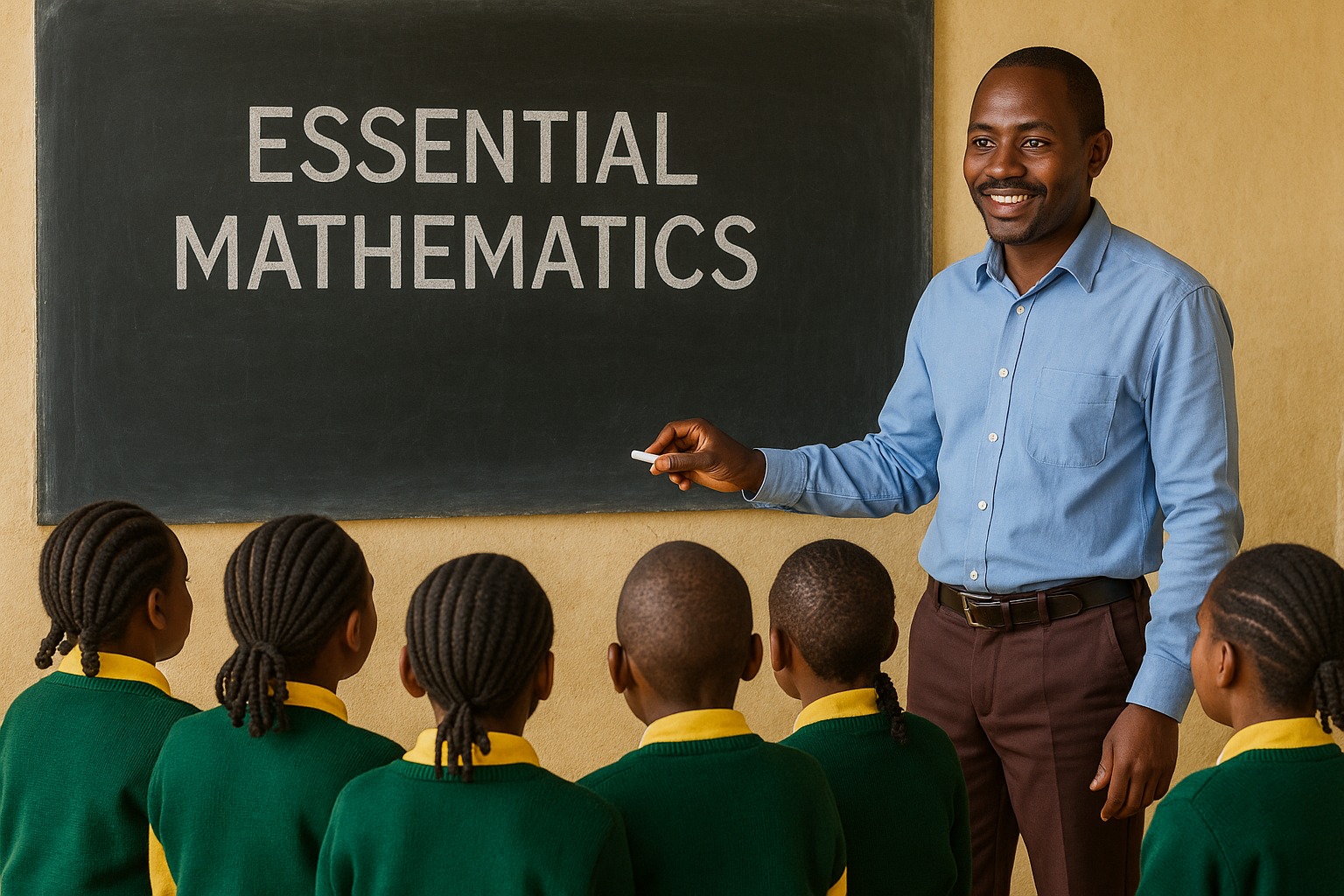
 A teacher takes learners through Essential Mathematics. /AI
A teacher takes learners through Essential Mathematics. /AI
The initiative follows clarification by the Ministry of Education that Mathematics would remain a core and compulsory learning area of the Competency-Based Education (CBE), previously known as Competency-Based Curriculum (CBC).
The pioneer Grade 9 leaners will transition to Grade 10 in January, 2026, marking the start of Senior School.
The already developed Mathematics material is tailored for Stem learners.
Stem (Science, Technology, Engineering) comprises three tracks: Pure Sciences, Applied Sciences and Technical Studies.
Essential Mathematics will serve learners pursuing Social Sciences and Art and Sports Science pathways.
Art and Sports Science comprises Visual Arts, Performing Arts and Sports Science.
Social Sciences comprises Languages and Literature and Humanities and Business Studies.
The Kenya Institute of Curriculum Development (KICD) explained why a new set of Mathematics curriculum had to be developed to serve learners who will not opt for Stem.
The Ministry of Education initially announced that Mathematics would not be compulsory for students who would not be pursuing Stem in Senior School (Grade 10-12).
This, in total disregard that Mathematics is considered a generic skill that every learner should be exposed to regardless of their preferred pathway, alongside English Language, Kiswahili and Community Service Learning.
It therefore followed that KICD focused on developing Mathematics material specifically tailored for learners who would only be pursuing Stem amid public concern about the side effects of the policy statement.
"When that announcement was being made, we had already developed a curriculum for the particular subject that we thought was suitable for students opting for that option (Stem), so that is already done and it will be offered as it was developed,” KICD Director Charles Ong’ondo said in an interview with the Daily Nation.
When the Ministry of Education made a U-turn and stated that Mathematics would maintain its compulsory status in Senior School, it drew the curriculum developer back to the drawing board.
This after it emerged that the more advanced Mathematics tailored for Stem learners would not meet the needs of learners pursuing Social Sciences and Arts and Sports Science.
“However, it must be understood that even students in these pathways who decide that they will do the mathematics undertaken by Stem students have the freedom to do so,” Ong’ondo clarified.
Key features of the two-tier Mathematics curriculum
Ong’ondo said curriculum designs for Essential Mathematics have already been drafted and are set for review this week.
What will follow is the revision of the material, stakeholder engagement, review by KICD academic committee and finally the final approval by the council.
All these processes are expected to be completed by June this year, the KICD boss revealed.
"Thereafter, we will invite publishers to submit books for Essential Mathematics, which will be evaluated in August 2025 so that we are ready to distribute them alongside other subjects for learners in Grade 10,” Ong’ondo said.
The rollout of the two-tier mathematics is to ensure that all students, regardless of their academic pathway, have access to structured mathematics learning suited to their career aspirations and interests.
Essentially, all learners will be exposed to mathematics, but the depth and complexity will differ based on their chosen academic pathway.
The government has formed a technical committee, including KICD, to operationalize the policy and ensure mathematics remains a foundational subject up to senior secondary level.
The move to retain mathematics as a core subject has been welcomed by educators, professional bodies, and parent associations, who argue that foundational math skills are critical for developing problem-solving abilities and maintaining career flexibility in a rapidly changing, data-driven global economy.
KICD and the Ministry of Education have reiterated that the curriculum reforms are intended to nurture every learner's potential, with mathematics serving as a bridge for interdisciplinary studies and future career opportunities.
It reflects a balance between specialisation and foundational skill-building, aligning with both national development goals and global educational best practices.














